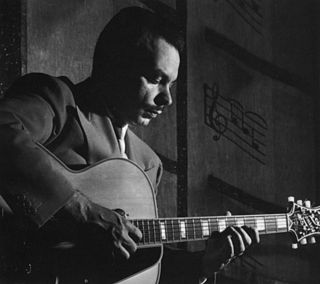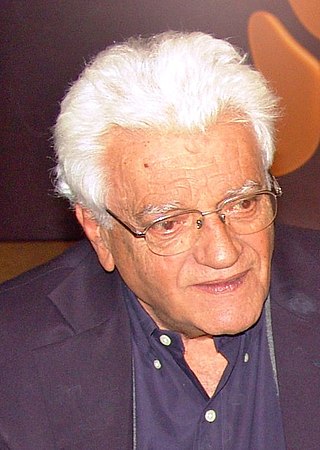A list of films produced in Brazil in 1960:
A list of films produced in Brazil in 1960:

Franklin James Schaffner was an American film, television, and stage director. He won the Academy Award for Best Director for Patton (1970), and is known for the films Planet of the Apes (1968), Nicholas and Alexandra (1971), Papillon (1973), and The Boys from Brazil (1978). He served as president of the Directors Guild of America between 1987 and 1989.

Ira Marvin Levin was an American novelist, playwright, and songwriter. His works include the novels A Kiss Before Dying (1953), Rosemary's Baby (1967), The Stepford Wives (1972), This Perfect Day (1970), The Boys from Brazil (1976), and Sliver (1991). Levin also wrote the play Deathtrap (1978). Many of his novels and plays have been adapted into films. He received the Prometheus Hall of Fame Award and several Edgar Awards.
Marcel Camus was a French film director. He is best known for Orfeu Negro, which won the Palme d'Or at the 1959 Cannes Film Festival and the 1960 Oscar for Best Foreign Language Film.

Black Orpheus is a 1959 romantic tragedy film directed by French filmmaker Marcel Camus and starring Marpessa Dawn and Breno Mello. It is based on the play Orfeu da Conceição by Vinicius de Moraes, which set the Greek legend of Orpheus and Eurydice in a contemporary favela in Rio de Janeiro during Carnaval. The film was an international co-production among companies in Brazil, France and Italy.
Cinema Novo, "New Cinema" in English, is a genre and movement of film noted for its emphasis on social equality and intellectualism that rose to prominence in Brazil during the 1960s and 1970s. Cinema Novo formed in response to class and racial unrest both in Brazil and the United States. Influenced by Italian neorealism and French New Wave, films produced under the ideology of Cinema Novo opposed traditional Brazilian cinema, which consisted primarily of musicals, comedies and Hollywood-style epics. Glauber Rocha is widely regarded as Cinema Novo's most influential filmmaker. Today, the movement is often divided into three sequential phases that differ in tone, style and content.

Laurindo Almeida was a Brazilian guitarist and composer in classical, jazz, and Latin music. He was one of the pioneers in the creation of bossa nova. Almeida was the first guitarist to receive Grammy Awards for both classical and jazz performances. His discography encompasses more than a hundred recordings over five decades.

Eduardo de Oliveira Coutinho was a Brazilian film director, screen writer, actor and film producer, known as one of the most important documentarists in Brazil.
Cinema da Boca do Lixo is the collective name for a film genre associated with the Boca do Lixo downtown area of São Paulo, Brazil. On par with French Nouvelle Vague and American slasher films, films of this genre are exploitational and often considered B movies. These films often feature eroticism.
Patrick may refer to:

Amácio Mazzaropi was a Brazilian actor and filmmaker.

Roberto Farias was a Brazilian film director, producer and screenwriter. He directed 15 films during his career. His 1982 film Pra Frente, Brasil was entered into the 33rd Berlin International Film Festival. Farias' brother Reginaldo Faria is also a film director and actor.

Leonardo Villar was a Brazilian actor. He became internationally known for his performance as Zé do Burro in Anselmo Duarte's O Pagador de Promessas, the only Brazilian film so far awarded a Palme d'Or at the Cannes Film Festival.

Odete Lara was a Brazilian film actress. She appeared in 37 films between 1954 and 1994, including two films shown at the Cannes Film Festival. In 1957 she was awarded with Prêmio Saci.

Walmor de Souza Chagas was a Brazilian actor, director, and producer. He appeared in more than 50 films and television shows between 1965 and 2012.

Paulo César Saraceni was a Brazilian film director and screenwriter. He directed 14 films between 1960 and 2011. His 1999 film Traveller was entered into the 21st Moscow International Film Festival where it won a Special Mention.
The history of Brazilian animation is relatively recent. In the first half of the 20th century, there were some small experiments produced in animation without much continuity, to the emergence of several animated films in the other half of the century. The 21st century saw the advent of many animated series for television.

Carla Camurati is a Brazilian actress and filmmaker. She became notorious for acting in several Rede Globo telenovelas in the 1980s. She also acted on children's theater, starred in films—including Eternamente Pagú for which she won the Best Actress Award of Festival de Gramado—and was cover of the Brazilian edition of Playboy. In 1995, she debuted as a director with Carlota Joaquina, Princess of Brazil, an important mark in the period of Cinema of Brazil known as "Retomada". She was the director of Fundação Theatro Municipal do Rio de Janeiro that administers the Teatro Municipal from 2007 to 2014.

Events in the year 1960 in Brazil.

Rogério Sganzerla was a Brazilian filmmaker. One of the main names of the cinema marginal underground movement, his most known work is The Red Light Bandit (1968). Sganzerla was influenced by Orson Welles, Jean-Luc Godard, and José Mojica Marins, and often used clichés from film noir and pornochanchadas. Irony, narrative subversion and collage were trademarks of his film aesthetics.